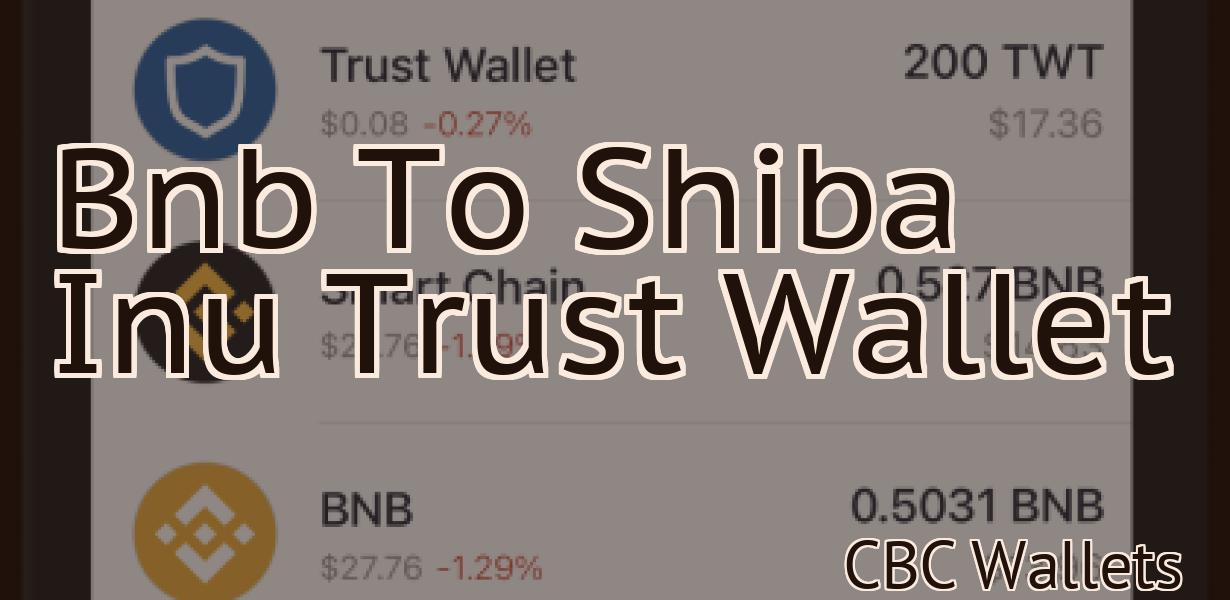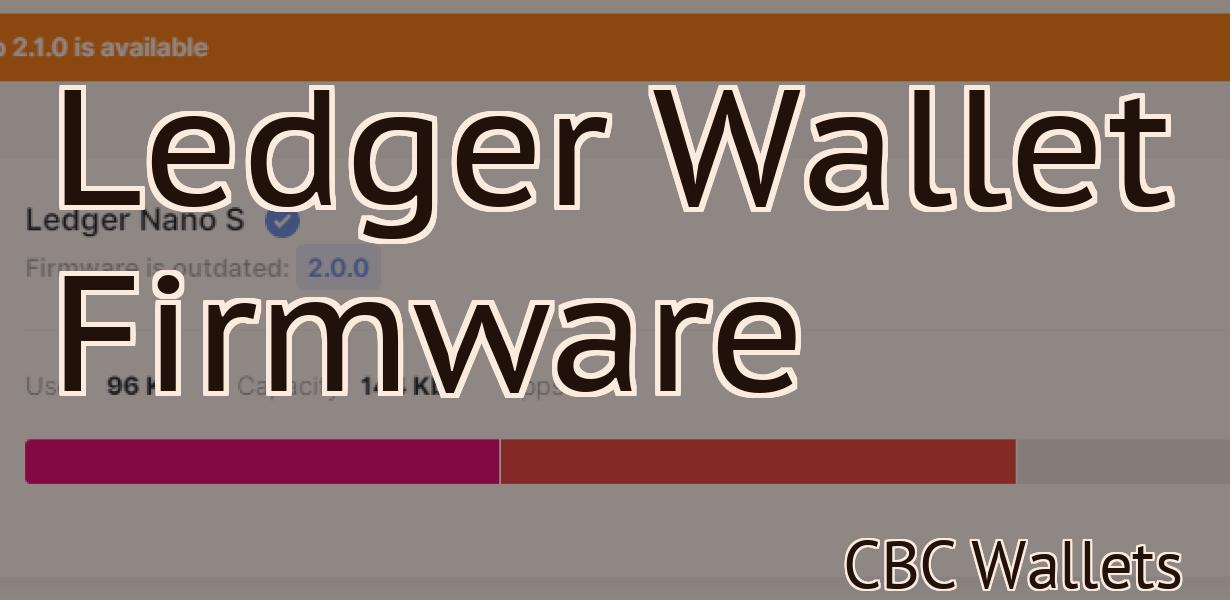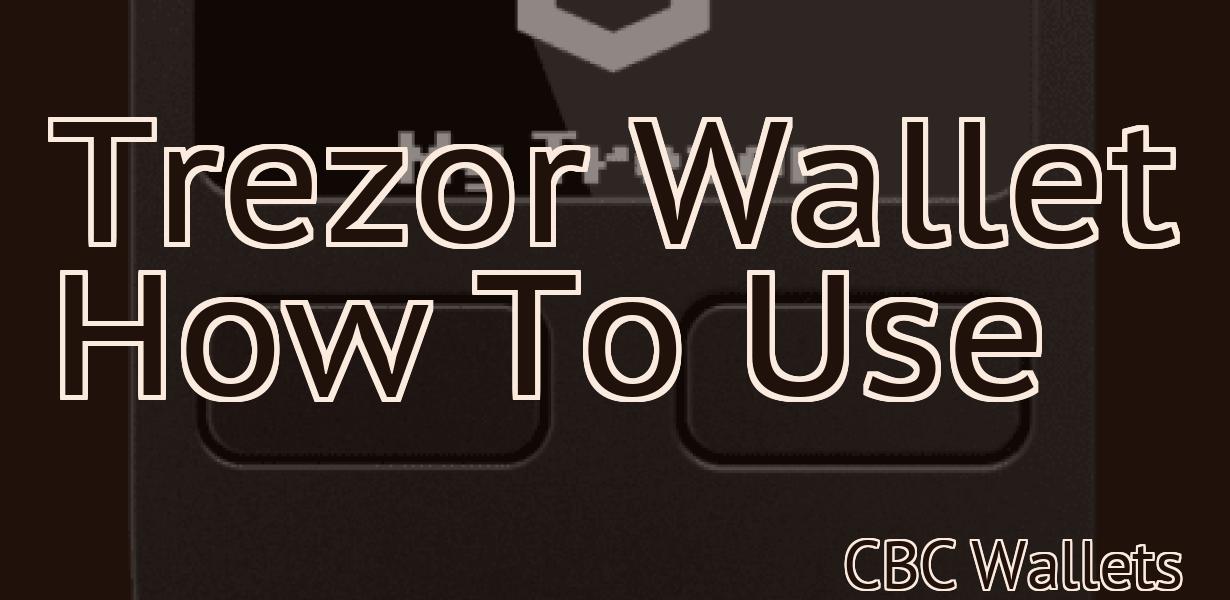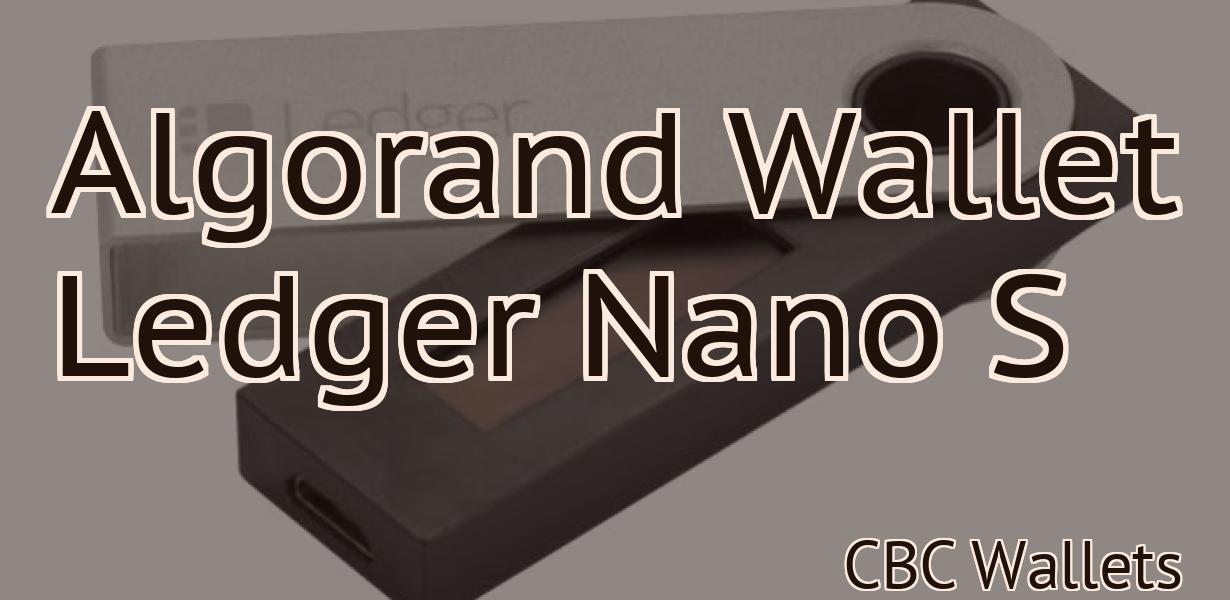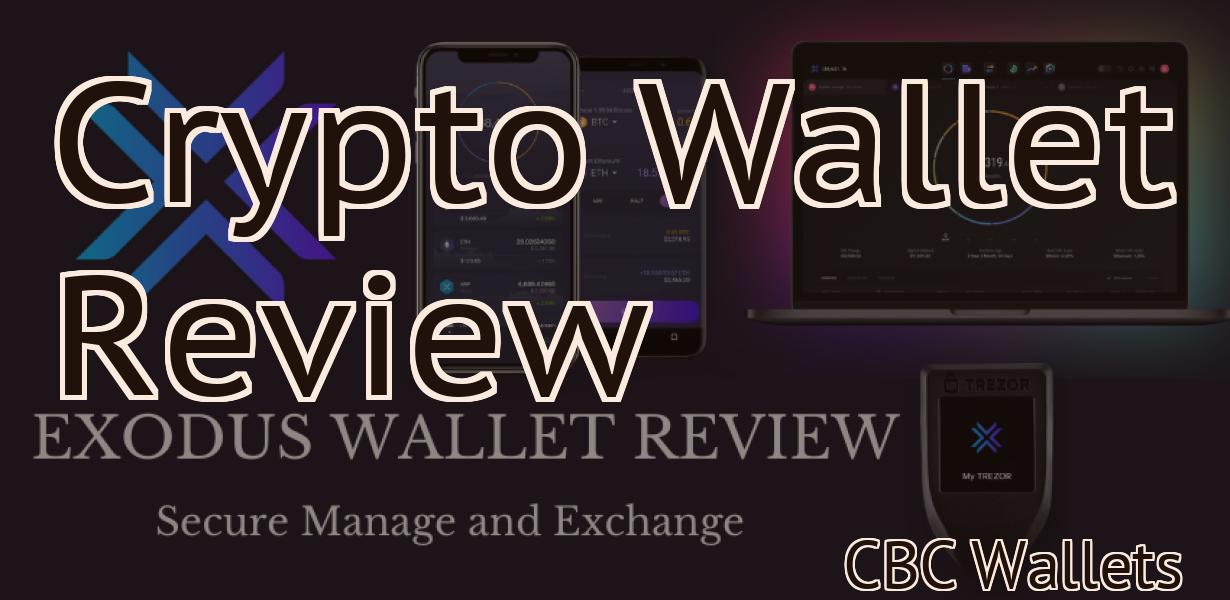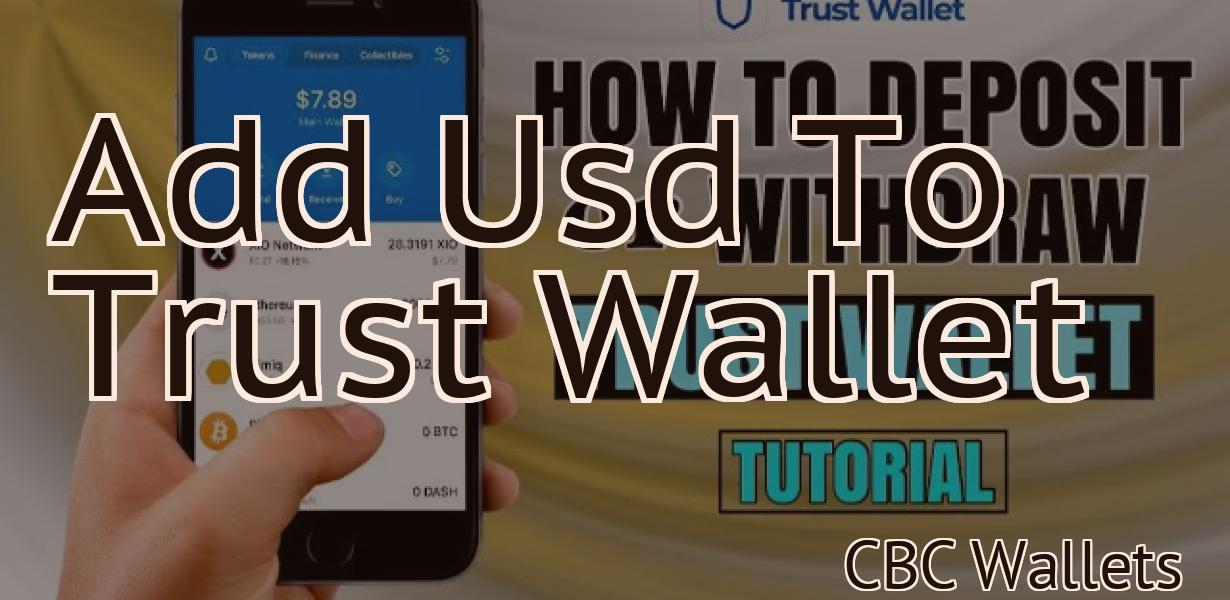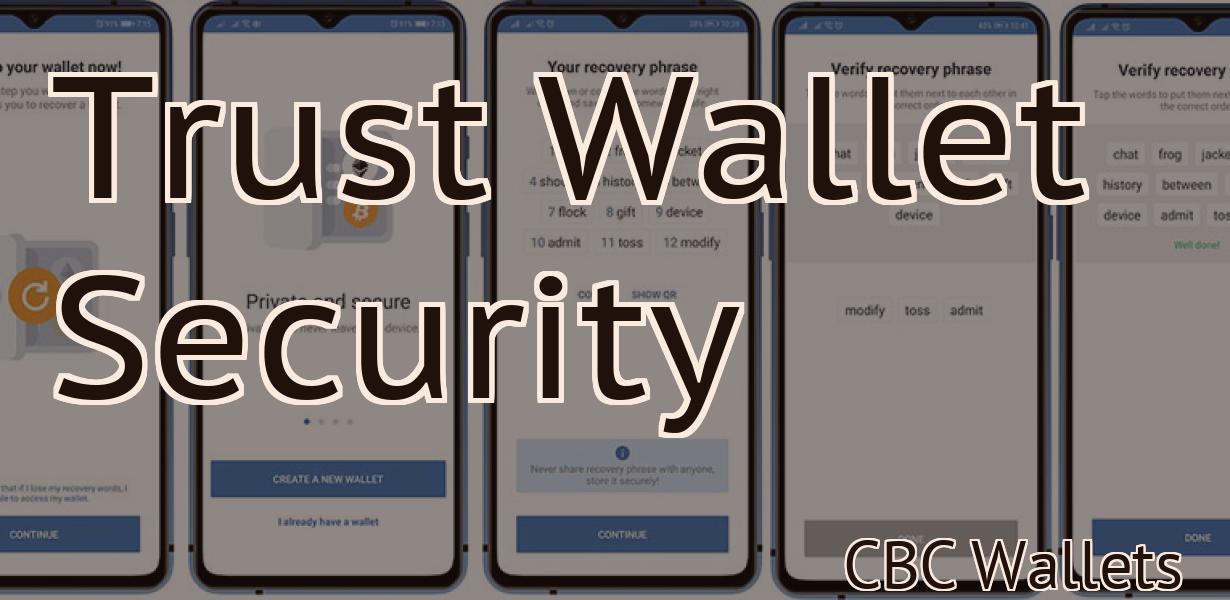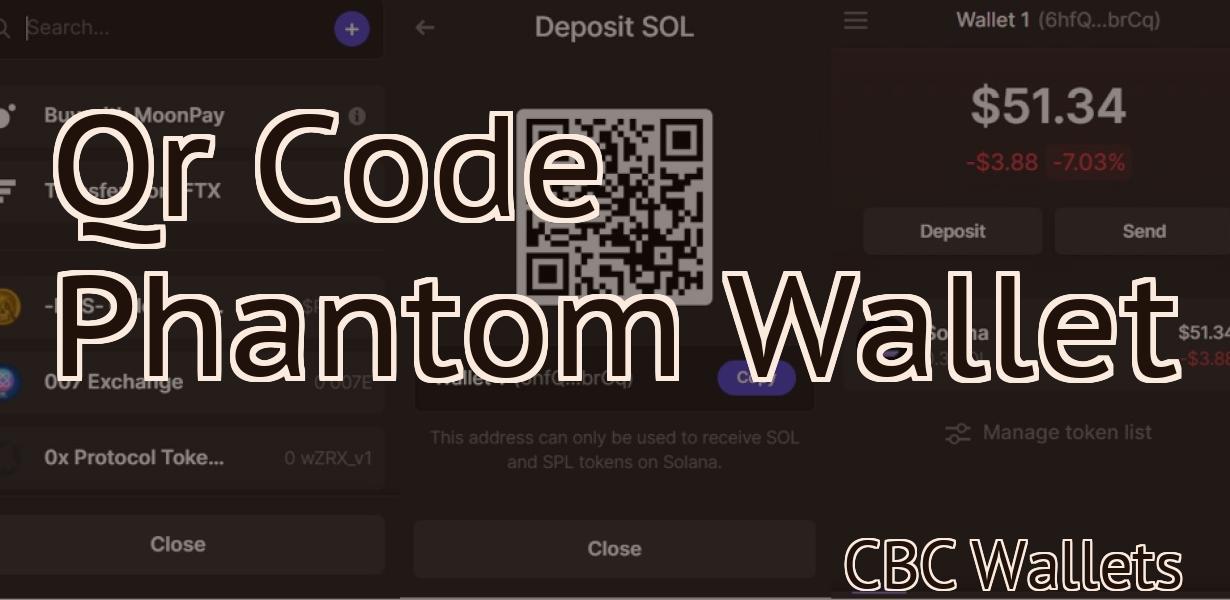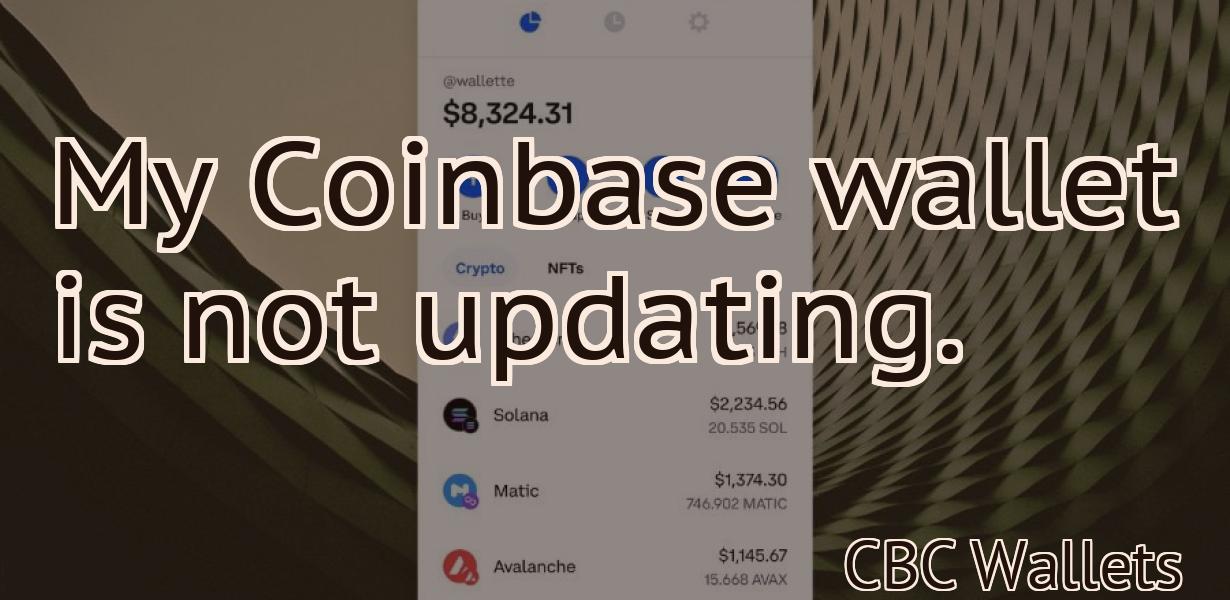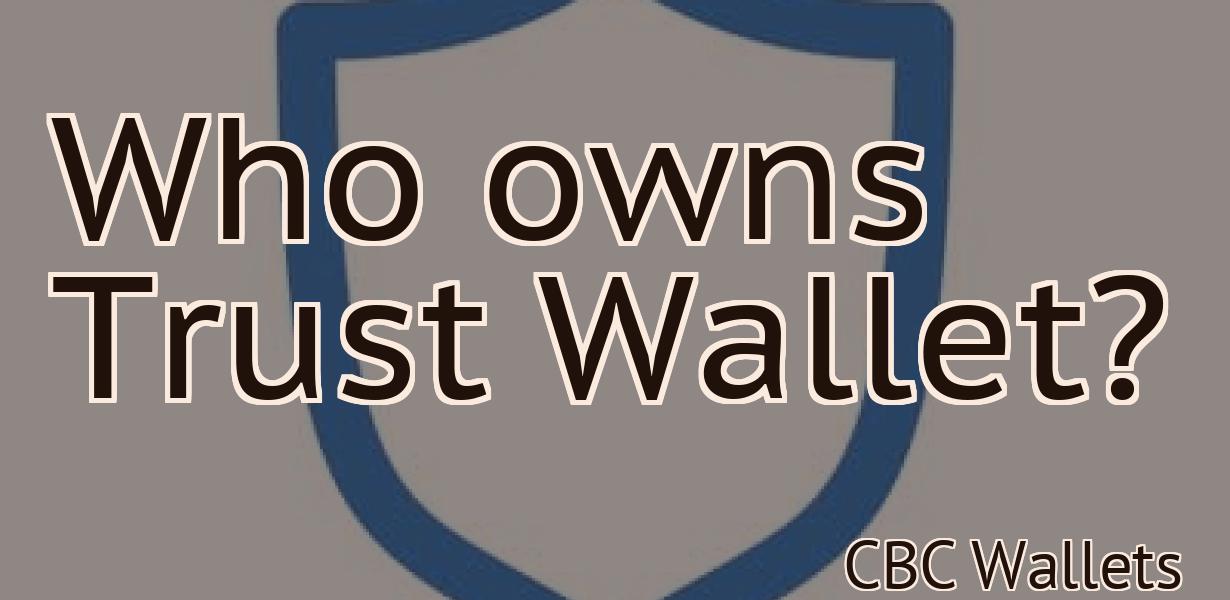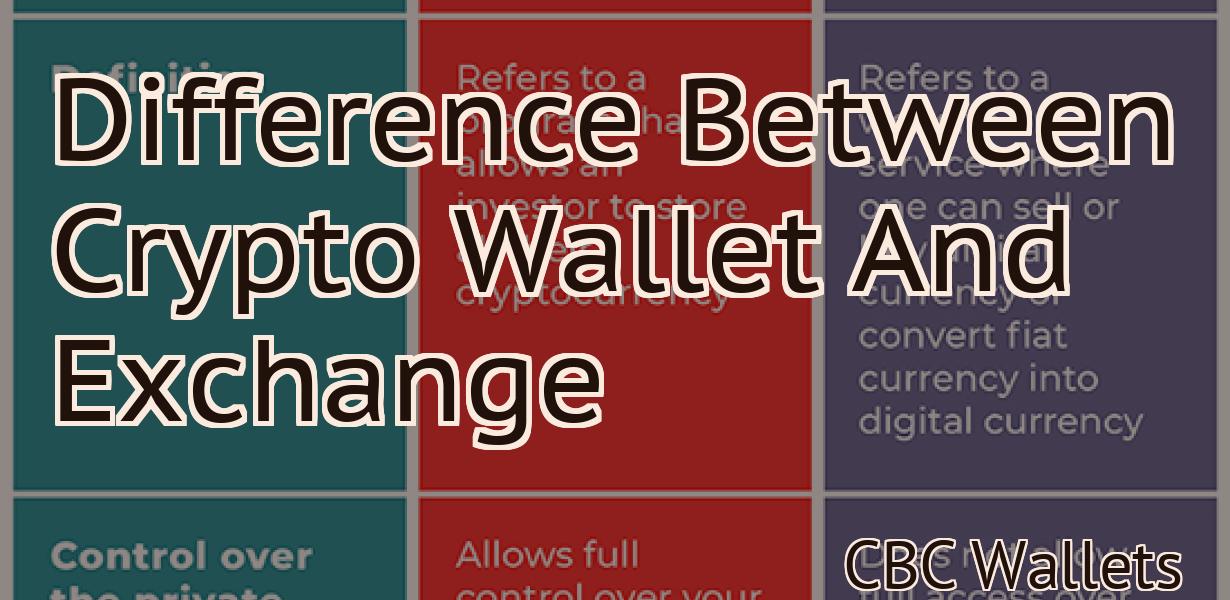Crypto Wallet For Beginners
A crypto wallet is a digital wallet that stores your private keys and public addresses, allowing you to transact with cryptocurrencies. Crypto wallets come in many forms, including hardware wallets, software wallets, and paper wallets.
The Different Types of Crypto Wallets
There are three types of wallets: desktop, mobile, and web. Desktop wallets are installed on your computer and allow you to store your cryptocurrencies offline. Mobile wallets are apps that you can install on your mobile phone and use to store your cryptocurrencies. Web wallets are websites that allow you to store your cryptocurrencies online.
Some popular desktop wallets include Blockchain.info and Exodus. Popular mobile wallets include Mycelium and Jaxx. Web wallets like Coinbase and Bitfinex are also popular.
How to Choose the Right Crypto Wallet
Before you can start using cryptocurrencies, you need to find a cryptocurrency wallet. A cryptocurrency wallet is a digital platform that allows you to store, send and receive cryptocurrencies.
There are a few things to consider when choosing a cryptocurrency wallet:
Type of Cryptocurrency: Bitcoin, Ethereum, Litecoin, Ripple, Bitcoin Cash, NEO, EOS, Tron etc.
Security: You need to make sure that the cryptocurrency wallet you choose is secure. Some wallets require you to enter a password to access your funds. Others use a two-factor authentication process.
Ease of Use: You also want the cryptocurrency wallet to be easy to use. Some wallets allow you to send and receive cryptocurrencies without having to install any software. Others require you to install a software program.
Supported Cryptocurrencies: Make sure the cryptocurrency wallet supports the types of cryptocurrencies you want to use. Some wallets only support a few types of cryptocurrencies.
Available Platforms: Make sure the cryptocurrency wallet is available on the platforms you want to use it. Some wallets are only available on desktop platforms. Others are available on both desktop and mobile platforms.
The Benefits of Using a Crypto Wallet
Crypto wallets are a great way to store your cryptocurrency. They allow you to securely store your coins and make it easy to access them.
Some of the benefits of using a crypto wallet include:
1. Security: A crypto wallet is a safe way to store your coins. It allows you to store your coins offline, which increases your security.
2. Accessibility: A crypto wallet is easy to access. You can use it to store your coins in any country.
3. Compatibility: A crypto wallet is compatible with most cryptocurrencies. This means that you can easily store and use your coins.
4. Privacy: Your crypto wallet keeps your coins private. This means that no one can access your coins except you.
5. Liquidity: A crypto wallet provides liquidity for your coins. This means that you can easily sell or buy your coins.
The Risks of Not Using a Crypto Wallet
There are a few risks associated with not using a crypto wallet. First, if you don’t have a well-established crypto wallet, you may be at risk of losing your investment if you don’t have access to the private keys that are associated with that wallet. Second, if your crypto wallet is hacked, your coins may be stolen. Finally, if you don’t have any coins in your crypto wallet, you may not be able to use them when you want to purchase something online or in another physical location.

How to Keep Your Crypto Wallet Safe
There are a few things you can do to keep your crypto wallet safe. First, make sure to keep your private keys safe. Do not store them in the same place as your wallet file. Second, make sure to use a secure password for your wallet. Third, make sure to backup your wallet regularly. Finally, never use your wallet address to pay anyone else.
The Best Crypto Wallets for Beginners
If you are a beginner in the world of cryptocurrencies, there are a few wallets that you should consider using.
The first wallet that you should use is a desktop wallet. A desktop wallet is a software program that stores your cryptocurrencies offline on your computer. Desktop wallets are more secure than online wallets, as they are not connected to the internet.
The next wallet that you should use is an online wallet. An online wallet is a wallet that is connected to the internet. Online wallets are less secure than desktop wallets, as they are more vulnerable to cyber attacks.
The final wallet that you should use is a mobile wallet. A mobile wallet is a wallet that is installed on your mobile phone. Mobile wallets are less secure than desktop and online wallets, as they are less protected from cyber attacks.
The Worst Crypto Wallets for Beginners
If you're just getting started with cryptocurrency, it's important to choose a wallet that's user-friendly and safe. Here are the five worst wallets for beginners:
1. Mycelium
Mycelium is a popular wallet for Android users, but it's not beginner-friendly. First of all, it requires a bit of technical knowledge to set up. Additionally, Mycelium is known for being insecure, which could lead to your coins being stolen.
2. Coinbase
Coinbase is one of the most popular Bitcoin wallets, but it's also one of the most complicated. First, you need to create an account, and then you need to generate a wallet address. Finally, you need to remember to backup your wallet address and salts (unique identifiers for each transaction) in case you lose your phone or lose your computer.
3. Hive
Hive is a mobile-only wallet that's popular among Bitcoin enthusiasts. However, Hive is not beginner-friendly. First, you need to create an account, and then you need to set up a password. Additionally, Hive is not very user-friendly, and it can be difficult to find help if you need it.
4. Mycelium iOS
The Mycelium iOS wallet is similar to the Mycelium Android wallet, but it's much easier to use. First, you need to create an account, and then you can simply open the app and start sending and receiving coins.
5. Copay
Copay is another popular Bitcoin wallet, but it's not particularly beginner-friendly. First, you need to create an account, and then you need to set up a password. Additionally, Copay is not as user-friendly as some other wallets, and it can be difficult to find help if you need it.
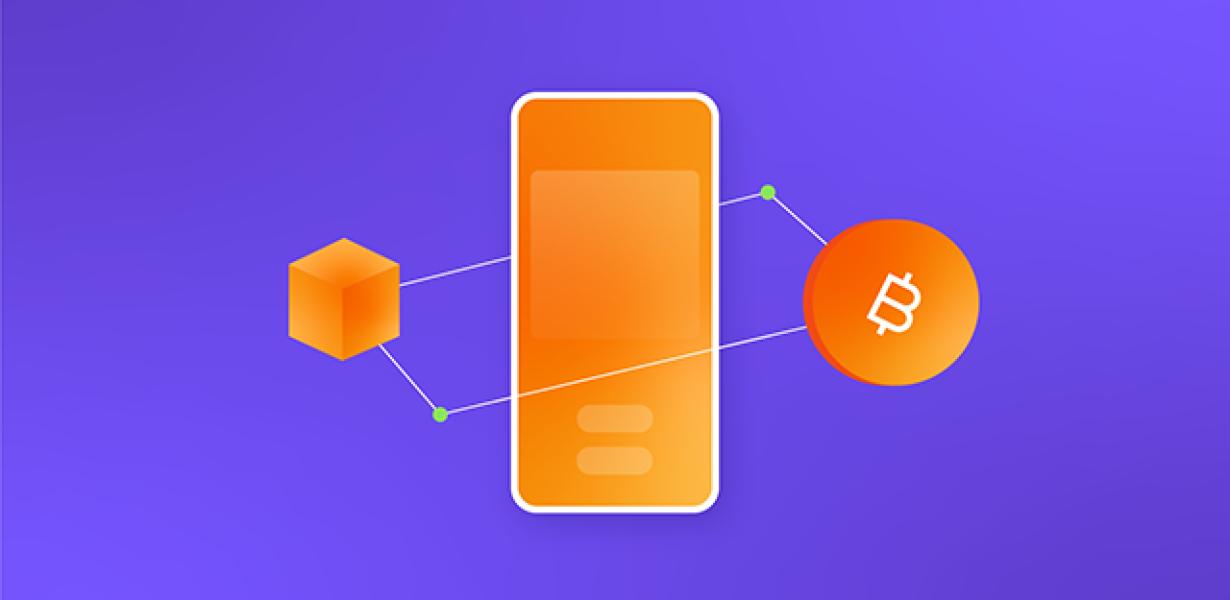
How to Use a Crypto Wallet
To use a crypto wallet, you will need to have an account with one of the many providers available. Once you have an account, you will need to generate a new key. This key is what will allow you to access your wallet and spend your coins.
Once you have your key, you will need to set up a password. This password will need to be kept confidential, as it is the only way to access your coins. You can also choose to encrypt your wallet, which will make it more difficult for someone to access your coins.
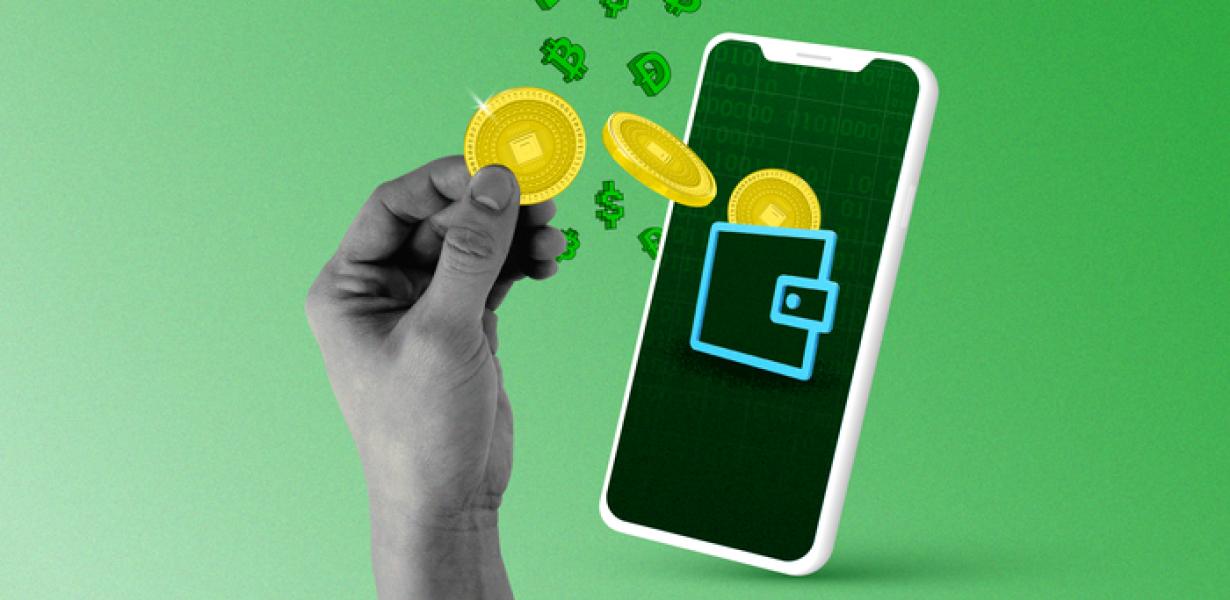
How to Store Your Crypto Wallet
Cryptocurrencies are digital or virtual tokens that use cryptography to secure their transactions and to control the creation of new units. Cryptocurrencies are decentralized, meaning they are not subject to government or financial institution control.
To store your cryptocurrencies, you need a digital wallet. A digital wallet is a software application or website where you can store your cryptocurrencies. Digital wallets allow you to manage your cryptocurrencies and to transact with them.
There are a number of different types of digital wallets. Some digital wallets are desktop applications, while others are online applications. You can also use a digital wallet to store your cryptocurrencies in an exchange.
When you first create a digital wallet, you need to generate a unique key. Your key is a string of characters that you use to access your digital wallet. You should keep your key safe and secret, and never share it with anyone.
To store your cryptocurrencies, you need to install the digital wallet software on your computer. After you install the digital wallet software, you can open the software and create a new account.
To send or receive cryptocurrencies, you need to add the recipient's address to your wallet. After you add the recipient's address, you can send or receive cryptocurrencies by clicking on the "send" or "receive" buttons.
What to Do if You Lose Your Crypto Wallet
If you lose your crypto wallet, there are a few things you can do to try and recover your holdings.
1. Check if you have backup copies of your wallet files
First, make sure you have backup copies of your wallet files - including the private key(s) for your wallets. If you don't have backup copies, you can try to find a web service that allows you to export your wallets' private keys.
2. Use a different crypto wallet
If you can't find your original crypto wallet, you can try using a different crypto wallet. Some popular crypto wallets include Exodus, Jaxx, and MyEtherWallet.
3. Ask a friend or family member for help
If you can't find your crypto wallet or you lost it, you can ask a friend or family member for help. They may be able to help you restore your holdings from a backup or use a different crypto wallet.
How to Recover Your Crypto Wallet
If you have lost your crypto wallet, there are several things you can do to try and recover it.
First, try to find the device where your wallet was stored. If you can't find it, then you can try to find the backup you made. If you can't find the backup, then you can try to find someone who has the same crypto wallet and ask them for help.
The Future of Crypto Wallets
Crypto wallets have come a long way since their inception in 2014. Cryptocurrencies have seen a meteoric rise in value, and so has the interest in trading and holding these assets.
As cryptocurrencies continue to grow in popularity, it is likely that more and more people will want to store their assets in a crypto wallet. This means that the future of crypto wallets is likely to be very exciting.
There are a number of different types of crypto wallets available on the market, and each offers its own unique features and benefits. Some of the most popular crypto wallets include:
1. Desktop wallets: Desktop wallets are downloaded and installed on your computer. They are often considered to be the safest option, as they are not connected to the internet.
2. Mobile wallets: Mobile wallets are available on both Android and iOS platforms. They allow you to carry your cryptocurrencies with you wherever you go.
3. Web wallets: Web wallets are accessed via a web browser. They are convenient, but less safe than desktop or mobile wallets.
4. Hardware wallets: Hardware wallets are physical devices that allow you to store your cryptocurrencies offline. They are considered to be the most secure option.
As the popularity of cryptocurrencies continues to grow, it is likely that more and more people will want to store their assets in a crypto wallet. The future of crypto wallets is likely to be very exciting, and we can expect to see many new and innovative options available on the market in the coming years.










